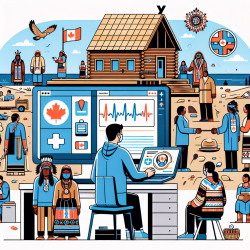Introduction
In conflict zones, healthcare providers face immense challenges, not only from the lack of resources but also from direct violence. The systematic review titled "Violence against healthcare in conflict: a systematic review of the literature and agenda for future research" sheds light on the nature and impact of these attacks. This blog post aims to guide practitioners on how to leverage the findings from this research to enhance their skills and advocate for safer healthcare environments.
Key Findings from the Research
The review identifies several critical areas of concern:
- Documentation and Reporting: Many incidents of violence against healthcare are underreported. Enhanced documentation is crucial for understanding the scope and impact of these attacks.
- Types of Attacks: Attacks vary from physical violence to intimidation and interference with healthcare delivery. Understanding these types can help in developing targeted protection strategies.
- Impact on Healthcare Systems: These attacks have far-reaching impacts on healthcare systems, affecting service delivery and the well-being of healthcare workers and patients.
- Need for Consistent Data: There is a need for more consistent and accessible data to facilitate cross-context comparisons and advocacy efforts.
Implementing Research Outcomes
Practitioners can take several steps to implement the outcomes of this research:
- Enhance Documentation: Develop and utilize standardized tools for documenting attacks on healthcare. This can help in creating a comprehensive database that can be used for advocacy and policy-making.
- Advocacy and Awareness: Use documented data to raise awareness about the issue among policymakers and the public. Advocacy can lead to stronger protection measures and accountability for perpetrators.
- Training and Preparedness: Provide training for healthcare workers on how to respond to and report attacks. Preparedness can mitigate the impact of such incidents.
- Collaborative Efforts: Work with international organizations and local communities to develop and implement strategies for protecting healthcare services in conflict zones.
Encouraging Further Research
While the existing research provides valuable insights, there are still gaps that need to be addressed. Practitioners are encouraged to engage in further research in the following areas:
- Gender Dynamics: Explore how gender impacts the nature and effects of attacks on healthcare.
- Long-term Impacts: Study the long-term effects of attacks on healthcare systems and communities.
- Perpetrator Motives: Investigate the motivations behind these attacks to develop more effective prevention strategies.
Conclusion
Violence against healthcare in conflict zones is a pressing issue that requires urgent attention. By implementing the findings of this research and encouraging further study, practitioners can contribute to creating safer environments for healthcare delivery. To read the original research paper, please follow this link: Violence against healthcare in conflict: a systematic review of the literature and agenda for future research.










